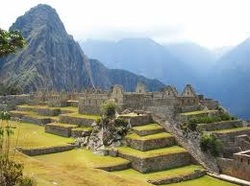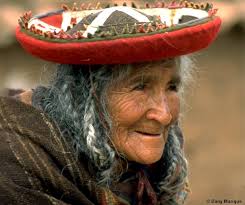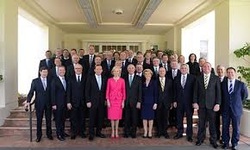 Lima, Peru
Lima, Peru I often wonder how present circumstances came about. After all, men and women were created different, each with a separate role, but equal in importance. Yet, nowadays, men take the lead and have the say about the future of society—war, bombs, and mass genocide. Would things be any different with women at the helm? Let's look at one society from the past.
 www.onthegotours.com
www.onthegotours.com With 10 ruins, El Paraiso is one of the biggest archaeological sites in central Peru and has been under excavation since 1981. The settlement once supported a farming and fishing community numbering hundreds of people.
In June, archaeologists unearthed a royal tomb from about 1,200 years ago. The discovery north of Lima and close to the modern-day Ayacucho in the Andes, sheds new light on the Wari empire, which ruled in the Andes before the rise of the better-known Inca civilization.
 www.willgoto.com
www.willgoto.com The news this morning reveals a new find of two mummies, an adult and a child, more than 1,000 years old. The child is believed to have been an offering to the gods and may have been buried alive after the adult's death. The mummies are squatting and are fully dressed wrapped in rope. It is the third intact find among more than 70 tombs uncovered in the Huaca Pucllana tomb.
We can only speculate on the circumstances of these deaths. It seems that little has changed in the way of people's cruelty over the centuries. But it's the interaction between men and woman that holds my interest. Women seemed to play an important role back then.
 www.theguardian.com
www.theguardian.com Iceland, Finland and Norway top the list of 136 nations, based on political participation, economic equality and rights like education and health. Featured in the top twenty countries, Ireland is sixth, New Zealand seventh, and the UK eighteenth with Canada 20. No mention of the USA in this list.
The Middle East and North Africa were the only regions not to improve in the past year, with Yemen at the bottom.
It seems we've got a long way to go before a balance is struck between men and women nowadays.

 RSS Feed
RSS Feed






